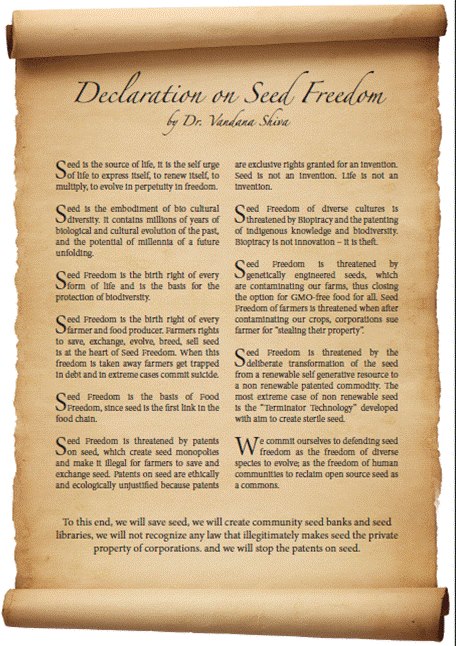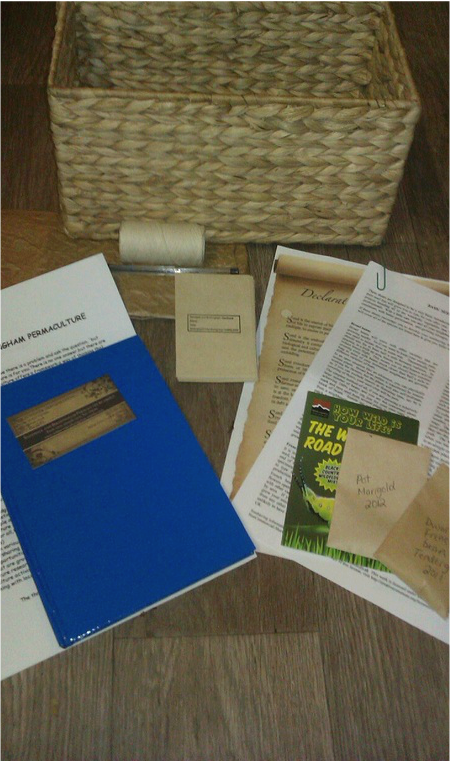SEEDBANK 2019
Going into a new growing year, this is an updated list of the seeds we have in our community seedbank. If you would like some, get in touch and we can bring them along to one of our workdays at Bleakhouse Library, or we can post them out to you. We also have a small selection of seeds permanently available at the Library, so if you are there on a day we are not, please do feel free to take a couple of packets.
A couple of points to please bear in mind. We are not a corporate professional organisation. It is just the two of us doing this. The seeds are not weighed or measured, we just pop a few into a plain 'wage packet' style envelope. Therefore, some packets will contain more seeds than others. Also, as many of the seeds are donated, we often cannot give the variety of seed beyond it's generic name. We also don't have the resouces to include growing instructions, but these should hopefully be easy enough to find on the Internet. We cannot guarantee that seeds are organic. Some of the seeds are in short supply, so it is a case of first come, first served.
We are also very grateful for donations of seeds, so if you have any spare you don't need, please do bear us in mind.
Happy growing!
Annie
FLOWERS
Allium
Cowslips
Day Lily
Evening Primrose
Nasturtium, varigated
Poached Egg plant
Poppies
Sunflower (Sunzilla)
HERBS
Chamomile
Chives
Coriander
Fennel
Garlic
Lavender
Sweet Cicely
GREEN LEAVES
Amaranth
Lamb's Lettuce
Land Cress
Lovage
Rocket
Salad Burnet
Swiss Chard
Welsh Onion
VEGETABLES
Cabbage (Savoy, Omskirk)
Carrot
Celeriac
Chard
Chickpea
Cucumber (Boothbys Blonde)
French Beans, climbing
Grape
Green Melon
Leek
Parsnip
Peas
Radish (Mooli, Munchin Bier)
Sprouting Broccoli
Squash
it.
SANDWELL AND BIRMINGHAM SEED BANK
We now have now launched our seedbank and we are hoping it will become a useful and ethical, sustainable resource for all to use.As well as giving seeds we would also like to encourage people to save their own seed too. We have a thread on our forum called Seed exchange although sadly under used. You can also use this thread to post what seeds you have to give away or swop and connect with others who wish to do so too. Where ever possible we will happily post out Seeds to people.
HOW IT WORKS
The seedbank is FREE to join but we ask that you commit to putting into the bank as well as taking from it.
As an additional extra we can also provide you with a seed saving kit at the cost of £10. Which contains :
A seed saving guide, a copy of Dr.Vandana Shivas' Decloration on seed freedom, some information about our Permaculture group, 3 packs of seeds, envelopes, brown bags, string and a pen. It will also include a book in which we would like to ask you to record any observations about the seeds you grow and collect so we can compile a yearly report that can be used as an information resource and also help us to improve the service.
We will also be holding 2 seed events a year involving talks and workshops.People can also use this event for networking as well as taking or donating seeds.We will also include plant swopping into this event.
The seedbank can be accsessed at any time by prior appointment or by post. There will be a members only page on the website (currently under construction) which lists all the seeds we currently hold.
We will send out a quarterly news letter and invite you to join our shared dropbox folder which contains regularly updated resources on a wealth of information about seeds and seed saving as well as other permaculture related topics.
We are a not for profit organization and the money we take from selling seed saving kits will purely go towards running costs ie. admin, production of seed saving kits etc.
If you are interested in joining please get in touch through our contacts page.
As an additional extra we can also provide you with a seed saving kit at the cost of £10. Which contains :
A seed saving guide, a copy of Dr.Vandana Shivas' Decloration on seed freedom, some information about our Permaculture group, 3 packs of seeds, envelopes, brown bags, string and a pen. It will also include a book in which we would like to ask you to record any observations about the seeds you grow and collect so we can compile a yearly report that can be used as an information resource and also help us to improve the service.
We will also be holding 2 seed events a year involving talks and workshops.People can also use this event for networking as well as taking or donating seeds.We will also include plant swopping into this event.
The seedbank can be accsessed at any time by prior appointment or by post. There will be a members only page on the website (currently under construction) which lists all the seeds we currently hold.
We will send out a quarterly news letter and invite you to join our shared dropbox folder which contains regularly updated resources on a wealth of information about seeds and seed saving as well as other permaculture related topics.
We are a not for profit organization and the money we take from selling seed saving kits will purely go towards running costs ie. admin, production of seed saving kits etc.
If you are interested in joining please get in touch through our contacts page.
Reclaming the seed
People have been collecting seed for hundreds of years adding to the biodiversity and balance of the ecosystem but since the commercialization of the seed trade in the 19th century this all changed and is still changing as you read.
Saving your own seed is important for many reasons,apart from being a rewarding practice completing the circle of the seasons it is also important because we are loosing the biodiversity of seeds (and therefore plants) which has many effects on the surrounding environment,Since the turn of the 20th century we have lost about 96% of the seeds that were common at that time.The commercial seed industry is now dominated by chemical and biotech corporations such as Monsanto and independant seed companies have been left by the wayside.This has also had a big effect on farmers worldwide.
We should all have access to a bank of open pollenated and non-GMO seeds.Community seed banks can provide seeds with local characteristics,plants that have adapted to our immediate surroundings and appropriate heirloom variaties for our area.Saving seed in this way also helps to save them from extinction.
Saving your own seed is important for many reasons,apart from being a rewarding practice completing the circle of the seasons it is also important because we are loosing the biodiversity of seeds (and therefore plants) which has many effects on the surrounding environment,Since the turn of the 20th century we have lost about 96% of the seeds that were common at that time.The commercial seed industry is now dominated by chemical and biotech corporations such as Monsanto and independant seed companies have been left by the wayside.This has also had a big effect on farmers worldwide.
We should all have access to a bank of open pollenated and non-GMO seeds.Community seed banks can provide seeds with local characteristics,plants that have adapted to our immediate surroundings and appropriate heirloom variaties for our area.Saving seed in this way also helps to save them from extinction.
Saving seed
When saving seed remember you can not save seed from F1 hybrids- you need to harvest from real open pollenated plants.You must dry them without heating and pack and store them them in a cool dry place.Of course different plants require different seed harvesting methods.
Please find a comprehensive guide below and information on laws governing seeds.
| manifesto_on_the_future_of_seeds.pdf | |
| File Size: | 295 kb |
| File Type: | |
| seed-kit.pdf | |
| File Size: | 963 kb |
| File Type: | |


